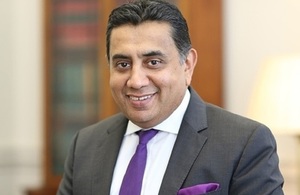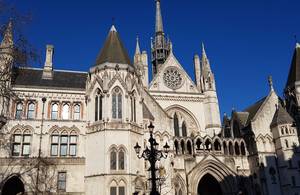UKHSA monitoring Ebola outbreak in East Africa
News story
The UK Health Security Agency (UKHSA) is currently monitoring an outbreak of Ebola virus disease cases in Uganda.

The risk to the public in the UK is very low and there are currently no cases of the disease confirmed in the UK. A public health alert has been issued to urge healthcare professionals to be vigilant to the symptoms in patients who have recently returned from affected areas and to remind them of the established procedures for infection control and testing.
Ebola virus disease (EVD) is a rare but severe infection. It is caused by the Ebola virus, a filovirus that was first recognised in 1976 and has caused sporadic outbreaks since in several African countries.
Dr Meera Chand, UKHSA Director of Clinical and Emerging Infection, said:
UKHSA constantly monitors emerging infection threats in collaboration with partners across the world. We are aware of an outbreak of Ebola cases in Uganda and are monitoring the situation closely. The risk to the public in the UK is very low.
Background
There has never been a case of Ebola virus disease contracted in the UK. Two cases contracted overseas were transported to the UK in 2014. Both recovered after treatment in specialist high consequence infectious disease (HCID) units.
Published 6 October 2022



